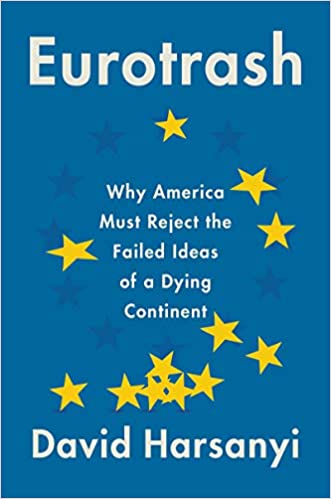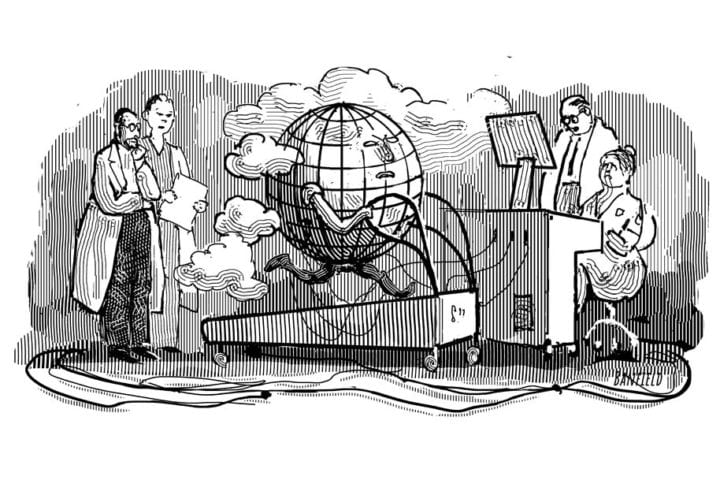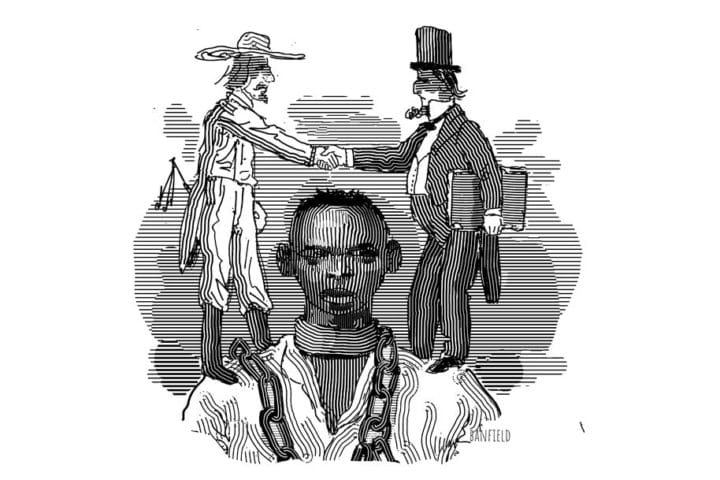Book Reviewed
A specter is haunting America—the specter of Europe. Stagnant economies, noxious “healthcare,” imperious government, political violence, perverse ideologies, unassimilable immigration, cultural suicide, Islamic terror, Christian apostasy, censorship, infertility, abortion, and geronticide have wreaked havoc in the Old World for years. Now a leftist cabal wants to import those evils into our own country.
In Eurotrash: Why America Must Reject the Failed Ideas of a Dying Continent, National Review senior writer David Harsanyi offers a robust rundown of our ancestral continent’s sorry state and warns Americans not to follow in the footsteps of our distant relatives. He demystifies the Scandinavian utopias, explaining how even the Nordic people, described by the World Happiness Report as the happiest in the world, might well be lying to pollsters. He then proceeds to remind readers of the perils posed by socialized medicine, the profligacy of the European Union, and the relative intolerance shown to newcomers by Europe’s various ethno-states compared with the American melting pot. Harsanyi takes Europeans to task not only for their inhospitality to foreigners, but also for opening their borders to those millions of migrants in the first place. As Harsanyi notes, “the EU’s reckless border policies…changed the continent forever. Even if Europe immediately froze all migration moving forward, Muslims, overall younger and more likely to have children, would continue to dramatically increase as a share of the population.” Harsanyi’s chapter on mass migration stands out as especially relevant to today’s political debates. Few readers will balk at the book’s support for tax cuts and welfare reform, but by wading into the sticky issue of demographic change, Harsanyi risks attracting the same senseless charges of bigotry that Douglas Murray endured for discussing the same topic in The Strange Death of Europe (2017).
While faithful Muslims have flocked to Europe, Europeans have lost their own Christian faith, a fact the author laments. Despite being an atheist, Harsanyi “believes we should act as if liberty is handed down by God himself.” Christendom’s abandonment of its substantive beliefs has left it with nothing but hollow procedural norms—no match for the uncompromising views of many of Europe’s newcomers. Liberal defenses of free speech increasingly give way to an acceptance of censorship as Europeans attempt to spare the feelings and avoid the ire of Muslim migrants, who have often reacted to offensive speech not with more speech—as Western liberals prefer—but with knives and guns.
* * *
In fairness, Europeans have a historic taste for violence themselves. They kill large numbers of their children through abortion, increasing numbers of their parents and other undesired citizens through “euthanasia,” and countless men through regular warfare—though, after spending the first half of the 20th century bathing the continent in blood, they have mercifully ceased the latter (for now).
Unfortunately, all those failed ideas killing Europe arrived in America decades ago. Some issues, such as the rapid decline of Christianity and the rise of Islamic terror, have appeared only recently. Others—abortion, infertility, and mass migration without assimilation, for example—have advanced since the 1960s. Still others, such as the rapid expansion of government and perversion of the constitutional order, date back at least a century to the Progressives and their prince, Woodrow Wilson. Many of those pathologies are more advanced in Europe, while some—notably abortion—are more acute stateside.
But the central conflict in Eurotrash is not really between Europe and the United States, both of which suffer to differing degrees from the same social pathologies. The Old World merely offers the backdrop for Harsanyi’s true purpose: to defend liberalism against its ideological rivals. Toward the end of the book, he ascribes to “secular liberalism” a uniquely “legitimate claim to governance” and places the failure to defend “the moral standing of liberalism…at the center of Europe’s conundrum.” Indeed, liberalism is central to the book’s argument from the very first chapter, where Harsanyi claims,
We [Americans], in many ways, are the true inheritors of Europe’s liberal philosophical and cultural legacy—one that they have often abandoned. We have mined the best aspects of European thought—ideals of the Enlightenment, the moral codes of Judeo-Christianity, the economic dynamism of capitalism—and improved on them…[w]hich is why Europe should be looking to us for solutions, and not the other way around.
* * *
Harsanyi contends that Europe is dying because it has abandoned its best ideas, by which he means liberalism. But America seems to be dying too. As the “true inheritors of Europe’s liberal philosophical and cultural legacy,” what is our excuse? If liberalism has so easily given way to the various and sundry “illiberal” ideologies that the author deplores, is it possible that Europe’s supposedly finest idea was doomed from the start? Might it even have guided our decline?
In Eurotrash, David Harsanyi painstakingly details the many problems that Europe has brought upon itself and rightly warns his countrymen not to follow suit. But if we are to avoid sliding even further toward Europe’s fate, we must have a clearer view of how Europe lost its way in the first place. Was it a departure from liberalism—or its logical conclusion—that facilitated Europe’s impending demise? Perhaps we can look forward to a prequel.




